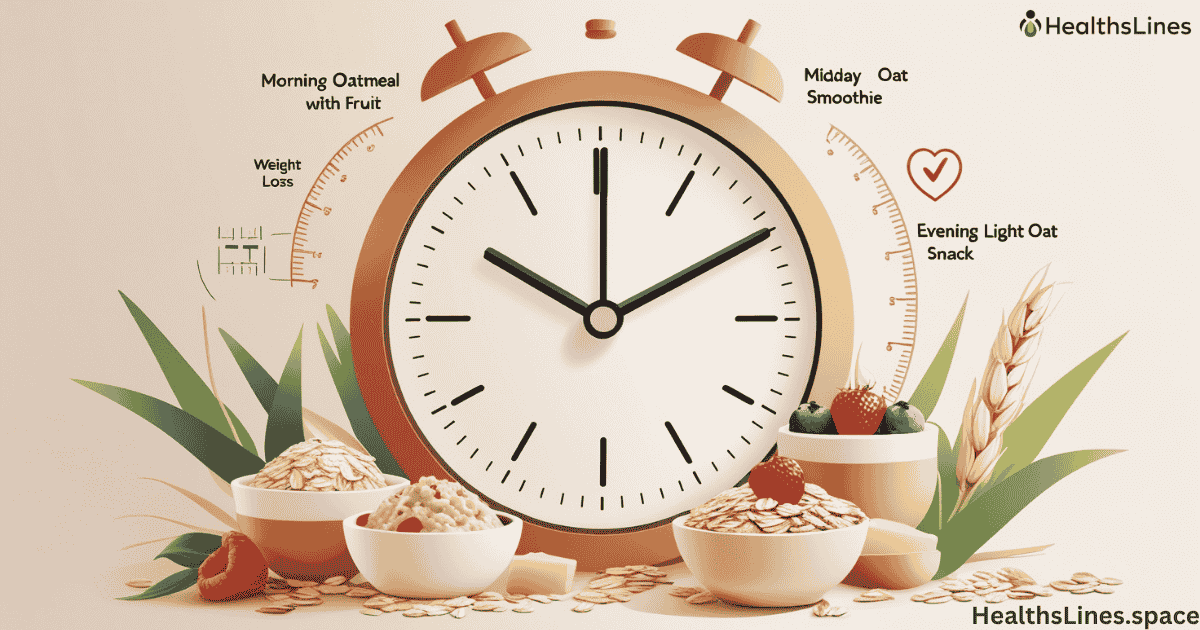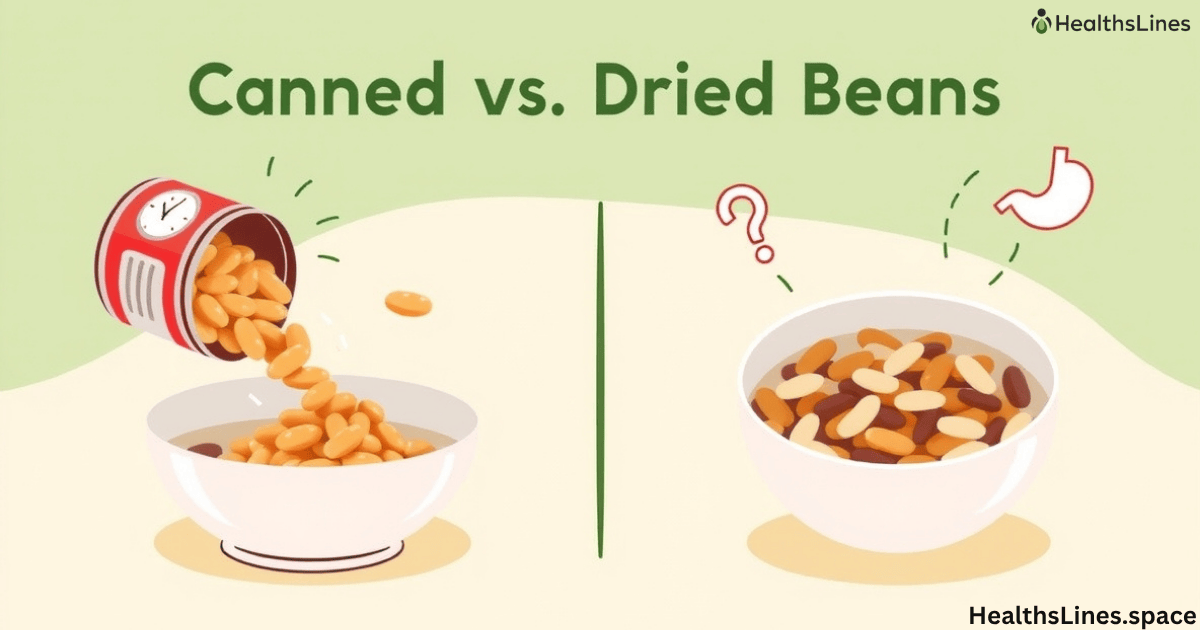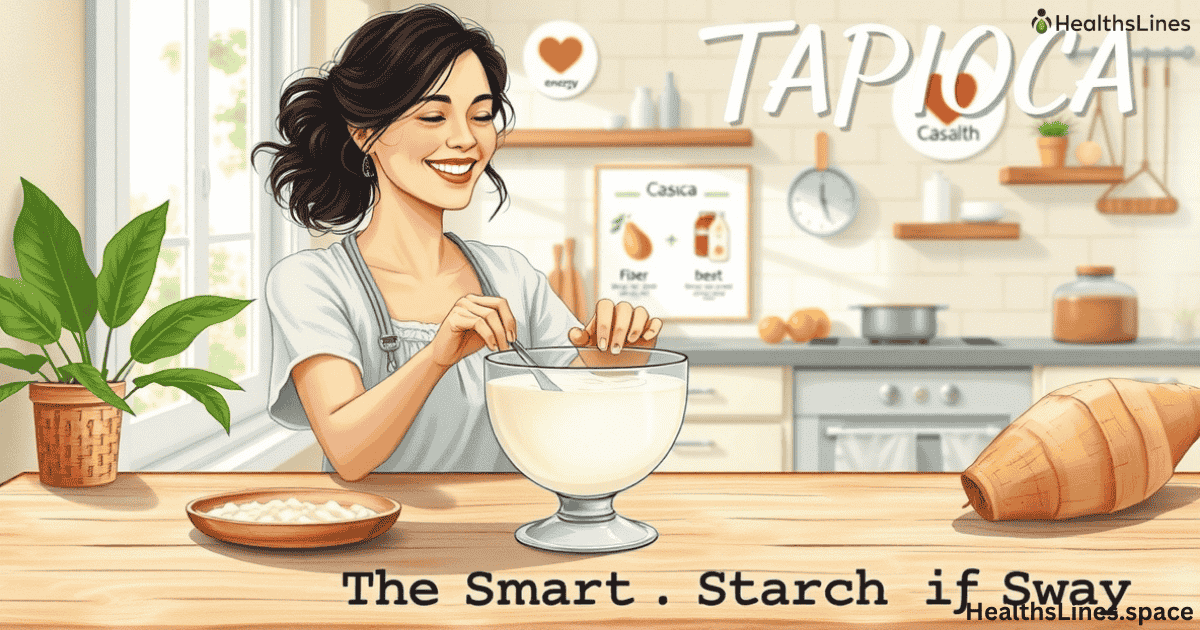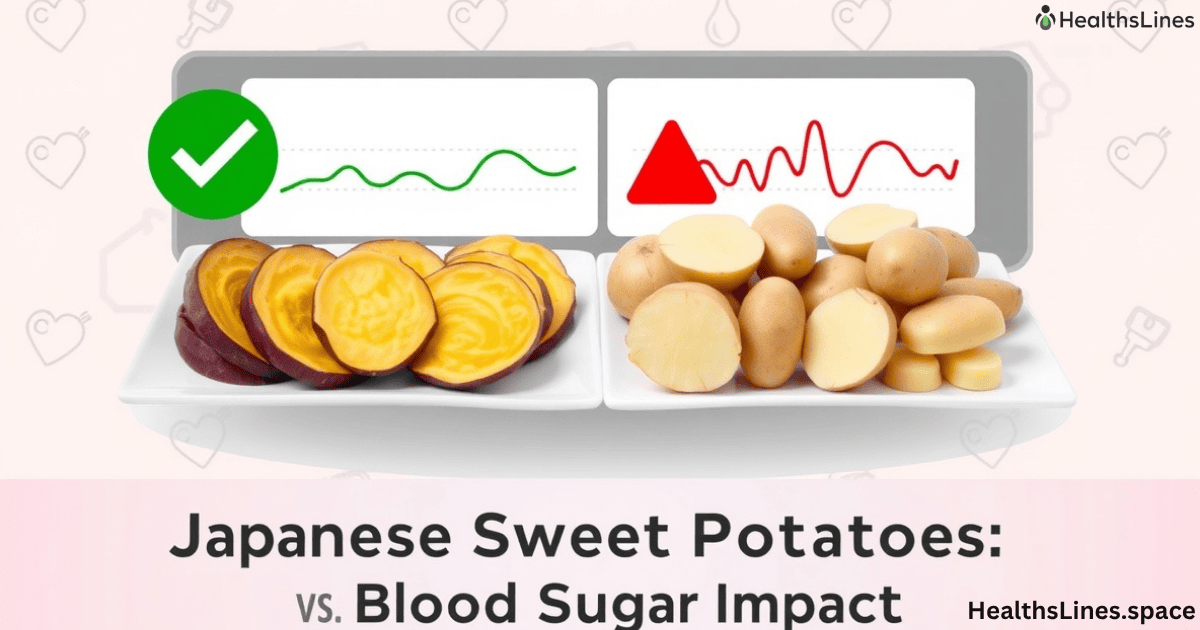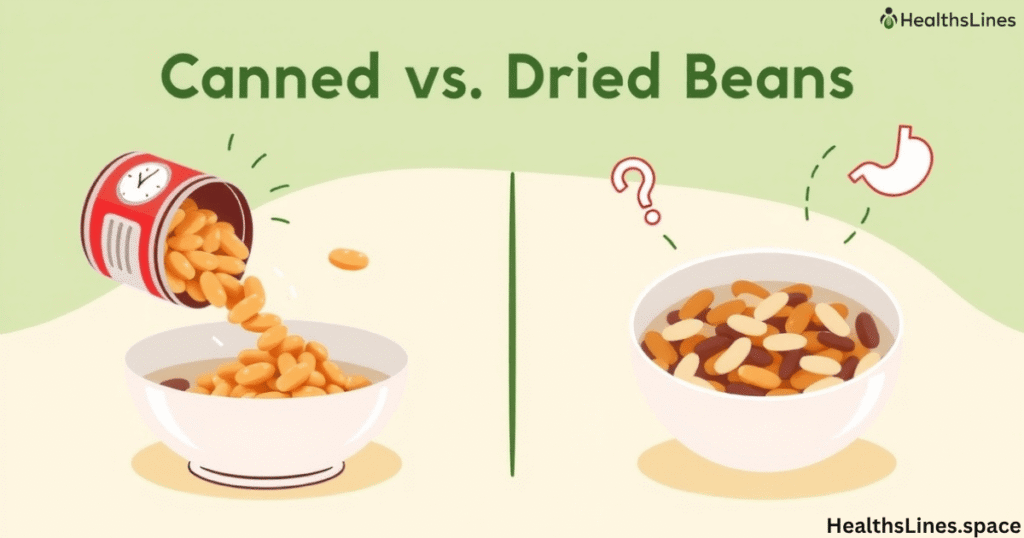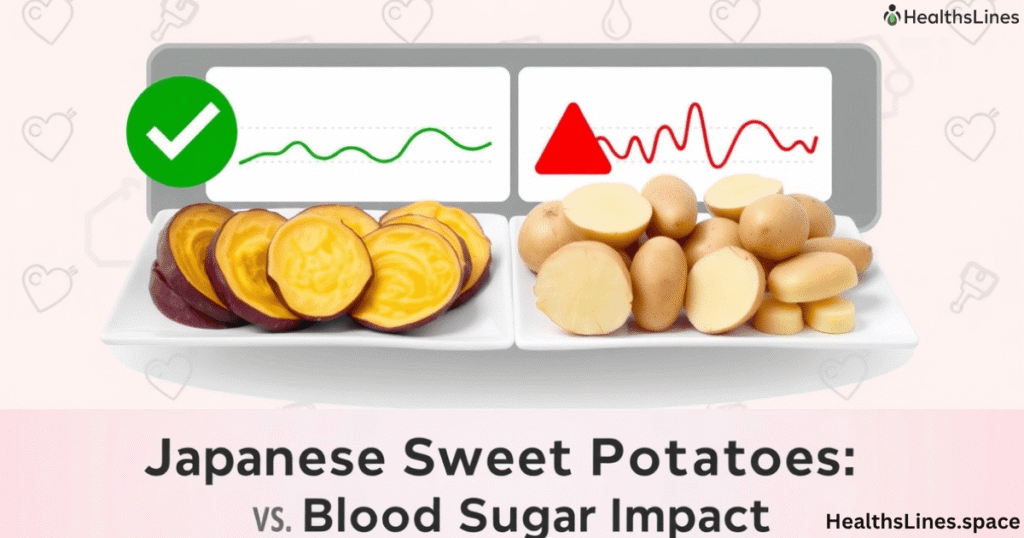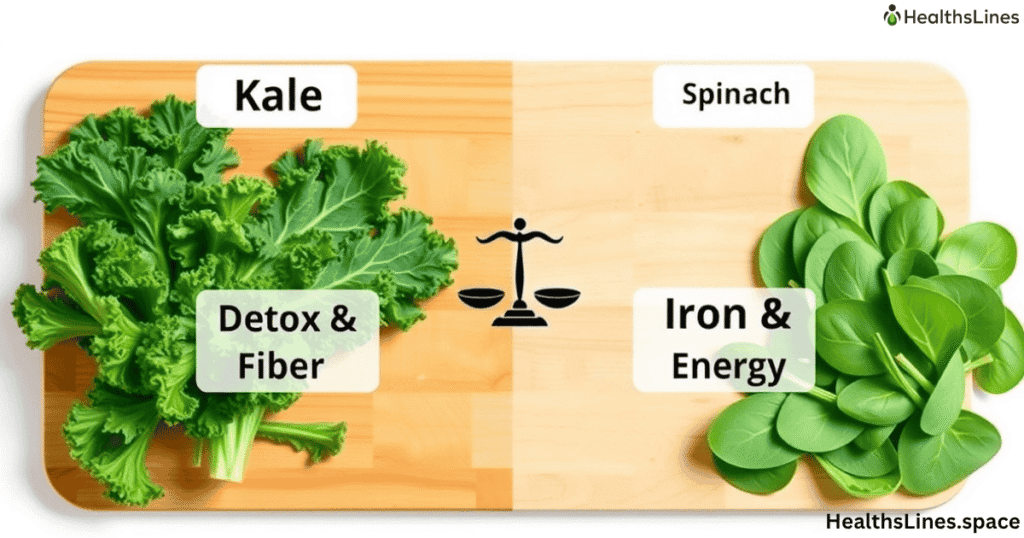Wondering when to eat oats for weight loss, digestion, or cholesterol? The answer depends on your goal. Oats are rich in fiber, low in calories, and packed with nutrients. But the timing of your oatmeal matters more than most people think. Whether you’re trying to slim down, improve gut health, or lower cholesterol, this guide will show you the best time to eat oats based on your body’s needs.
Many health experts now agree that when you eat matters nearly as much as what you eat. This is true with oats, which are known for beta-glucan benefits, helping you feel full, manage cholesterol, and support digestion. In this article, you’ll learn the science behind oatmeal timing for fat loss, how oats affect blood sugar control, and when to eat them for better results.
Best Time to Eat Oats for Weight Loss
If your goal is weight loss, eating oats in the morning is often the best choice. Morning vs night oats can make a big difference. When you eat oats early, you give your body a slow-burning source of energy. This helps reduce cravings later in the day. The fiber in oats makes you feel full longer, which means you’re less likely to snack or overeat.
Oatmeal before a workout is also ideal. It gives you steady fuel without spiking your blood sugar. If you want to burn fat, pair oats with a little protein before exercise. Studies show that people who eat oats in the morning tend to consume fewer calories overall. So if you’re wondering, should I eat oats at night for weight loss? It’s better to eat them earlier, when your body is active and metabolism is high.
Best Time to Eat Oats for Digestion Support
Oatmeal for digestion works best when eaten in the morning or midday. That’s when your digestive system is most active. Oats contain a type of fiber called beta-glucan, which helps food move through your gut. This improves gut health and oats are often used to ease constipation and support healthy bacteria in your stomach.
Your body digests oats slowly. That’s good for your gut, but it also means that eating oats too late may cause bloating or discomfort. If you struggle with indigestion or IBS, try eating steel-cut oats in the morning. They are less processed and higher in fiber. Also, drink plenty of water to help the fiber work properly.
Best Time to Eat Oats for Lowering Cholesterol
Oats and cholesterol are closely linked. The beta-glucan in oats helps lower bad cholesterol (LDL) by trapping it in your gut and flushing it out. To get this benefit, you should eat oats regularly, and timing matters. The best time to eat oats for cholesterol is in the morning or with lunch. This spreads out your fiber intake and supports better blood sugar control too.
Eating oats in the morning also helps stabilize your body’s energy levels. That means less chance of a sugar crash later. Research shows that people who consume fiber-rich meals early in the day have better cholesterol levels over time. To boost the effect, add fruit or flaxseeds to your oatmeal. These have extra fiber and antioxidants that support heart health.
Here’s a simple table showing when to eat oats for different health benefits:
| Health Goal | Best Time to Eat Oats | Why It Works |
| Weight Loss | Morning or Pre-Workout | Boosts metabolism, curbs hunger |
| Better Digestion | Morning or Midday | Improves bowel movement, avoids bloating |
| Lower Cholesterol | Morning or Lunch | Lowers LDL, supports heart health |
| Energy Boost | Morning | Gives steady energy, controls blood sugar |
| Sleep Support | Night (in rare cases) | Helps some people relax if paired with milk |
Should You Eat Oats at Night? Pros & Cons
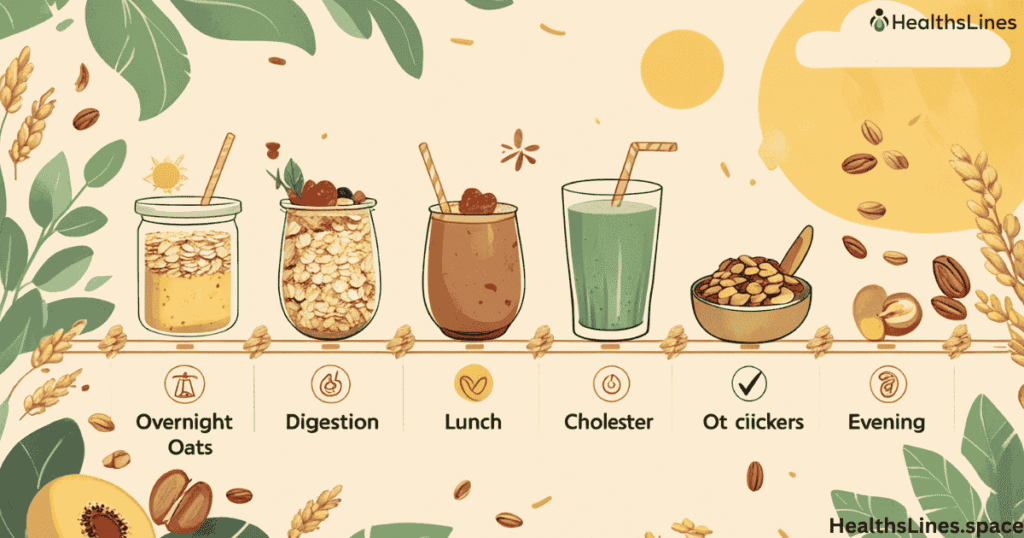
Many people ask, should I eat oats at night? The answer depends on your body. If you’re very active during the day and find yourself feeling hungry late at night, oats may help. They’re slow to digest and can reduce nighttime hunger without spiking blood sugar. Add almond milk and a spoon of nut butter for a sleep-friendly option.
But not everyone benefits from oats at night. Some people feel bloated or too full to sleep. Also, your metabolism slows down in the evening, so oatmeal timing for fat loss usually works better earlier. Still, if oats help you avoid junk food late at night, they may be a better option than reaching for chips or sugary snacks.
How Meal Timing Affects Oatmeal’s Benefits
Your body follows a natural rhythm called the circadian rhythm. This affects your digestion, energy levels, and metabolism. Studies show that eating more in the morning and less at night leads to better fat burning and lower blood sugar. That’s why oats for weight loss and blood sugar control work best early in the day.
If you eat oats for lunch, make sure to balance them with protein and healthy fats. This helps avoid spikes in blood sugar and keeps you full. Avoid instant oats with added sugar. These can cause energy crashes. Instead, choose steel-cut vs rolled oats for better long-term results. Steel-cut oats have more fiber and take longer to digest, keeping you full longer.
Who Should Limit or Avoid Oats?
While oats are healthy for most people, some should be careful. If you have celiac disease, regular oats may cause issues unless they’re labeled gluten-free. Even though oats don’t contain gluten naturally, they’re often contaminated during processing. People with gluten sensitivity should check labels carefully.
Also, people with high insulin resistance or blood sugar issues should avoid instant oats. These raise blood sugar quickly and don’t offer lasting energy. If you’re unsure whether oats are good for you, talk to your doctor or a dietitian. They can help you choose the best type of oats and the best time to eat them based on your health.
Best Ways to Prepare Oats Based on Your Goal
How you cook oats also matters. For fat loss, keep it simple. Use water or unsweetened almond milk, and add cinnamon or berries. For better digestion, try overnight oats. These are soaked, not cooked, making them easier on your stomach. They also save time in the morning.
If you want to boost cholesterol-lowering benefits, add chia seeds, walnuts, or sliced apples. These add more fiber and good fats. For workouts, combine oats with protein like Greek yogurt or a boiled egg. This makes a balanced pre-workout meal with oats that fuels your muscles and burns fat.
What Nutritionists Say About Oatmeal Timing
Registered dietitian Amy Goodson, MS, RD, says:
“Eating oats in the morning supports steady energy, and combining them with protein or healthy fat can keep you satisfied longer.”
A study published in The American Journal of Clinical Nutrition found that eating oats before noon leads to better blood sugar control and lower calorie intake through the rest of the day. Experts agree that the best time to eat oats is when your body needs slow, steady energy—usually in the first half of your day.
Summary: When Should You Eat Oats?
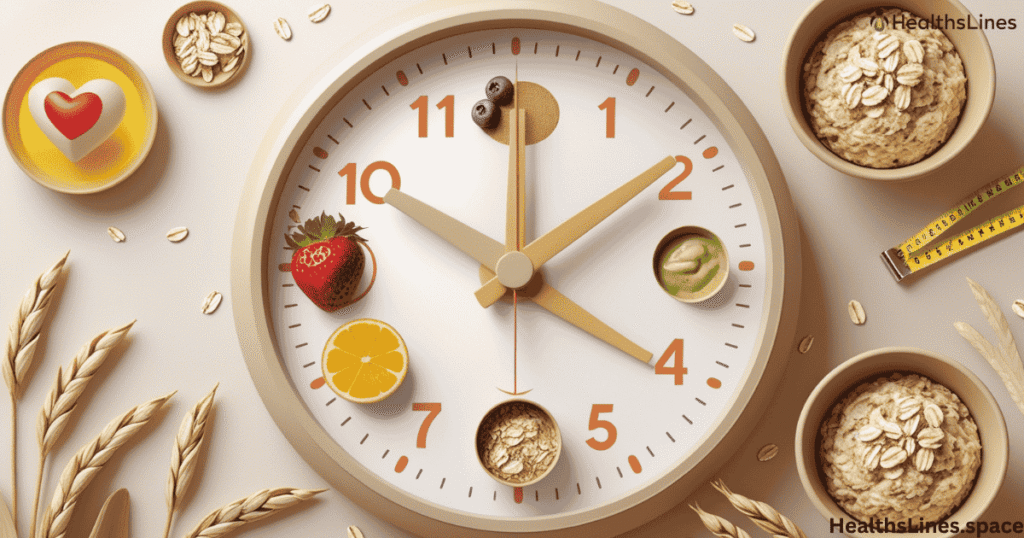
Here’s a quick comparison of the best times to eat oatmeal depending on your health goal:
| Goal | Time to Eat | Type of Oats | Add-ons for Extra Benefit |
| Weight Loss | Morning or Pre-Workout | Steel-cut or Rolled | Berries, cinnamon, Greek yogurt |
| Digestion | Morning or Midday | Overnight or Steel-cut | Banana, flaxseeds, almond milk |
| Cholesterol | Morning or Lunch | Rolled or Steel-cut | Apples, walnuts, chia seeds |
| Night Hunger | Evening (optional) | Rolled oats | Almond milk, nut butter, honey |
FAQ: Best Time to Eat Oats
What’s the healthiest time to eat oats?
Morning is best for most goals, especially weight loss and blood sugar control.
Can I eat oats at night?
Yes, if it helps manage hunger, but it may not be ideal for digestion or fat loss.
Do oats help with weight loss?
Yes. Their fiber helps control appetite and calories.
Should I eat oatmeal before or after exercise?
Before exercise is better for stable energy and fat burning.
Is oatmeal good for digestion?
Yes. Oats support gut health with soluble fiber like beta-glucan.
Conclusion
Oats are one of the healthiest foods you can eat, but the time you eat them makes a difference. If you’re aiming for weight loss, eat oats early to support metabolism and reduce hunger. For better digestion, stick to morning or midday meals. And if you’re trying to lower cholesterol, make oats a regular part of your breakfast or lunch.
Just remember, not all oats are created equal. Choose less processed types like steel-cut or rolled oats and skip sugary instant versions. Adjust the timing and toppings to fit your needs. With the right approach, oats can support your goals and improve your overall health.
